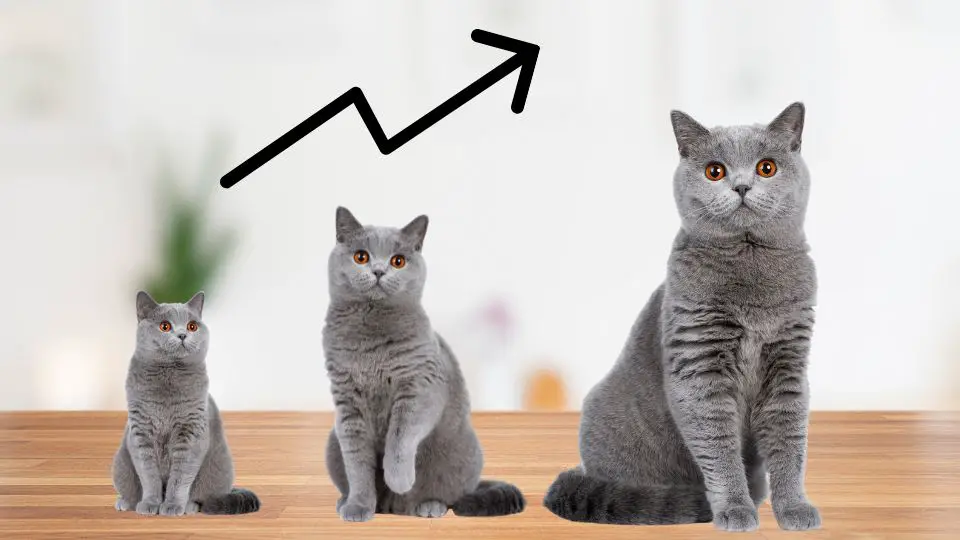British Shorthair cats are beloved companions known for their charming personalities and adorable appearance. However, like any other breed, they can be susceptible to food allergies. Understanding and addressing food allergies is essential for maintaining the health and well-being of your British Shorthair.
Common food allergens for British Shorthairs can include ingredients such as beef, dairy products, fish, chicken, grains (such as wheat and corn), and certain additives or preservatives commonly found in cat food.
In this comprehensive guide, we will delve into all you need to know about food allergies in British Shorthairs, including common allergens, symptoms, diagnosis, and management strategies.
Common Food Allergens for British Shorthairs
If you have a British Shorthair cat and suspect they may have food allergies, it’s important to understand the common food allergens that could be triggering their symptoms. Food allergies can cause discomfort and health issues for your furry friend, so being aware of potential allergenic ingredients and knowing what to watch out for is crucial.
Common proteins that can trigger British shorthair allergies:
- Chicken: Chicken is a widely used protein source in cat food. While many cats tolerate chicken well, some British Shorthairs may develop allergies to chicken proteins. Allergic reactions to chicken can manifest as digestive issues, skin irritations, or even respiratory problems.
- Beef: Beef is another protein source that can be allergenic for certain cats, including British Shorthairs. Cats with beef allergies may experience symptoms such as itching, redness, gastrointestinal upset, or ear infections.
- Fish: Fish is a popular ingredient in cat food due to its nutritional benefits. However, it can also be a common allergen for some cats, including British Shorthairs. Fish allergies can cause symptoms such as skin itchiness, digestive problems, or even vomiting.
- Dairy Products: Cats, including British Shorthairs, are lactose intolerant, meaning they lack the enzyme needed to break down lactose, the sugar found in milk and dairy products. Feeding dairy to cats can result in digestive upset, including diarrhea or vomiting.
In addition to these proteins, other common allergens for British Shorthairs may include grains (such as wheat and corn) and certain additives or preservatives commonly found in cat food.
Specific Ingredients to Watch Out For
When selecting cat food for your British Shorthair, read the ingredient list carefully and be aware of specific ingredients that could potentially trigger allergies:
- Artificial additives and preservatives: Some cats may be sensitive to artificial colors, flavors, and preservatives commonly added to cat food.
- Food colorings and flavorings: These additives can be potential allergens for sensitive cats.
- Fillers and by-products: Some cats may have allergies to common fillers like wheat, corn, and soy, or by-products derived from certain animal sources.
Understanding the ingredient list and being mindful of these potential allergenic ingredients can help you choose cat food that is less likely to cause adverse reactions in your British Shorthair.
Symptoms of Food Allergies in British Shorthairs
Food allergies can affect cats, including our beloved British Shorthairs. If you suspect that your British Shorthair may be experiencing food allergies, it’s important to recognize the symptoms and seek appropriate veterinary care.
Digestive Symptoms
Food allergies in British Shorthairs can manifest through various digestive symptoms. These may include:
- Vomiting: If your cat frequently vomits after eating, it could be a sign of a food allergy.
- Diarrhea: Loose stools or frequent bowel movements can indicate an adverse reaction to a specific food ingredient.
- Bloating: Abdominal discomfort and bloating may be experienced by cats with food allergies.
Skin-Related Symptoms
Skin-related symptoms are another common manifestation of food allergies in British Shorthairs. Watch out for the following signs:
- Itching and scratching: Excessive scratching, licking, or biting of the skin can indicate an allergic reaction.
- Rashes and redness: Skin rashes, redness, or inflammation may develop due to food allergies.
- Hair loss: Allergies can cause your British Shorthair to experience hair loss or develop bald patches.
Respiratory Symptoms
Respiratory symptoms can also occur in cats with food allergies. Look for the following signs:
- Sneezing: Frequent or persistent sneezing could be related to a food allergy.
- Coughing: Coughing, especially after eating, may indicate an allergic reaction to food.
- Wheezing: If your British Shorthair has difficulty breathing or makes wheezing sounds, it could be a symptom of a food allergy.
Diagnosing Food Allergies in British Shorthairs
When diagnosing food allergies in British Shorthairs, the veterinarian will start with a thorough examination and history taking. This includes:
- Physical Examination: The vet will assess your cat’s overall health, check for any skin conditions, and evaluate digestive symptoms.
- Medical History: Sharing information about your cat’s diet, previous allergic reactions, and any changes in behavior or environment can provide valuable insights.
Allergy Testing and Elimination Diet Trials
To identify the specific allergenic ingredient, veterinarians may employ the following methods:
- Allergy Testing: Blood tests or intradermal skin tests can help identify potential allergens, including food allergens, that may be triggering an allergic response.
- Elimination Diet Trials: A veterinarian may recommend an elimination diet trial to determine if a particular ingredient is causing the food allergy. During this trial, your British Shorthair will be fed a diet consisting of novel proteins and carbohydrates that they haven’t consumed before. If symptoms improve during the trial period and reappear upon reintroduction of suspected allergens, it can help pinpoint the specific ingredient causing the allergy.
Managing Food Allergies
To manage food allergies in your British Shorthair, it is crucial to identify and eliminate the specific allergenic ingredient causing the allergic reactions. Here’s what you can do:
- Consult with a Veterinarian: Seek guidance from a veterinarian to determine the allergen through various diagnostic methods such as allergy testing and elimination diet trials.
- Keep a Food Diary: Document your cat’s diet and any adverse reactions they experience. This can help identify patterns and potential allergens.
- Elimination Diet: Under the guidance of a veterinarian, transition your British Shorthair to a novel protein or hydrolyzed diet. This involves feeding them a diet consisting of proteins and carbohydrates they haven’t been exposed to before. Gradually reintroduce suspected ingredients to pinpoint the specific allergenic culprit.
Switch to Hypoallergenic or Limited Ingredient Diets
Once the allergenic ingredient has been identified, you can make dietary adjustments to manage your British Shorthair’s food allergies. Consider the following:
- Hypoallergenic Diets: These diets are specially formulated to minimize the risk of triggering allergic reactions. They typically use novel protein sources and limited ingredients.
- Limited Ingredient Diets: These diets contain a minimal number of ingredients, reducing the likelihood of encountering allergens. They can be beneficial for cats with known food allergies.
Preventing Food Allergies in British Shorthairs
Prevention is key when it comes to food allergies in British Shorthairs. By following certain practices and guidelines, you can minimize the risk of your feline companion developing food allergies.
Proper Nutrition and Balanced Diet
Providing your British Shorthair with a balanced and nutritious diet is the foundation for preventing food allergies. Consider the following:
- High-Quality Cat Food: Choose premium cat food brands that prioritize quality ingredients and avoid artificial additives, fillers, and potential allergens.
- Novel Protein Sources: Rotate protein sources to expose your cat to a variety of animal proteins. This can help reduce the risk of developing allergies to specific proteins over time.
- Essential Nutrients: Ensure your cat’s diet includes all the necessary nutrients, such as vitamins, minerals, and omega-3 fatty acids, which contribute to a strong immune system and healthy skin.
Introduce New Foods Gradually and Monitor for Reactions
When introducing new foods to your British Shorthair’s diet, it’s important to proceed gradually and monitor for any adverse reactions. Follow these guidelines:
- Gradual Transition: When switching to a new food or introducing new ingredients, do so gradually over a period of 7 to 10 days. Start by mixing a small amount of the new food with the old, gradually increasing the proportion of the new food.
- Watch for Reactions: During the transition and after introducing new foods, observe your cat for any signs of adverse reactions, such as gastrointestinal upset, skin irritations, or changes in behavior. If you notice any unusual symptoms, consult with your veterinarian promptly.
Conclusion
By being knowledgeable about food allergies and taking appropriate measures, you can ensure the optimal health and happiness of your British Shorthair. Remember to pay attention to any signs of food allergies, consult with your veterinarian for an accurate diagnosis, and implement an appropriate management plan.
With the right approach and care, you can provide your British Shorthair with a diet that nourishes them while minimizing the risk of allergic reactions. By prioritizing their well-being and addressing food allergies, you can enjoy a wonderful and fulfilling life together with your beloved British Shorthair companion.







